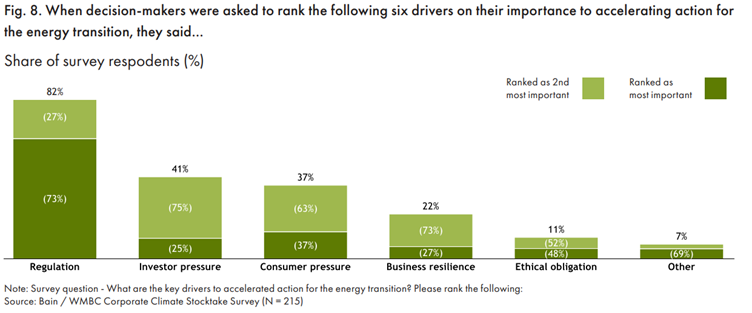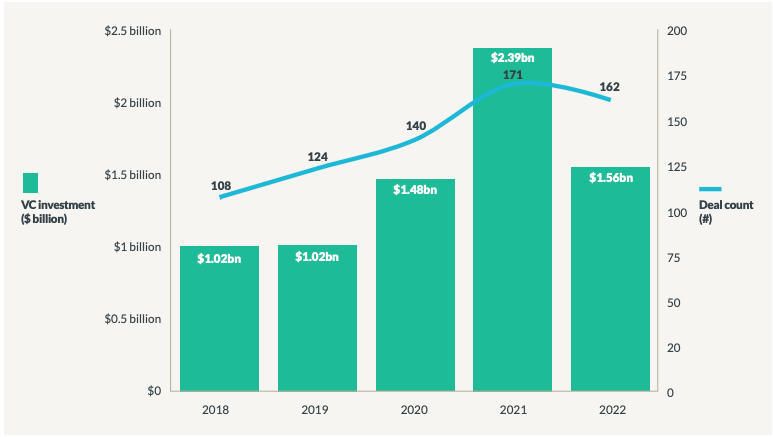6 Years and Counting, Nature-tech Taking Off and Game-changing Aluminium Storage
In this issue:
6 years left to hit net zero
That’s the conclusion of a team of international scientists assessing the remaining carbon budget (RCB) to leave a 50% chance of sticking within the 1.5C temperature increase. They calculate we can only emit another 250 GtCO2 to give us that 50/50 shot. That equates to around 6 years of emissions at current rates. Put another way, we have 6 years to get to net zero and that would still only give us a 50/50 chance. To give a 50% chance of sticking within 2C we have 29 years to reach net zero at current emission rates.
30% of heavy emitters still relying on fossil fuels beyond 2050
That’s the conclusion of a survey of 250 leaders across 8 high-carbon, hard to abate sectors. The least optimistic sectors were cement and shipping, the most optimistic road transport where half the respondents expect to be rid of fossil fuels by 2040. The most significant driver of change is expected to be regulation.
Nature tech attracting good early-stage investment
Increasing interest in the importance of nature-based solutions is seeing investments in early stage, nature tech start ups performing strongly. Over the last 5 years nature tech start ups have received around US$7.5bn (NZ$12.7bn) of investment. Between 2020 and 2022, early-stage deals increased 130% and average deal size increased 70%. The sector has been impacted by the recent downturn but the longer term trend remains positive.
Aluminium storage
Start-up Found Energy has developed a technology to allow the storage of energy in aluminium packs. Processed aluminium carries potential energy derived from the smelting process that is locked away by the outer, oxidised layer of the metal. Found’s innovation strips away the oxide layer making the aluminium reactive. When water and a catalyst are added the oxidation (rusting) process is accelerated releasing heat and hydrogen. The heat can be used directly and the hydrogen used as a fuel. The aluminium oxide residue can then be reprocessed to start the cycle again. The aluminium packs are light, can be easily transported and, according to Found, offer parity with fossil fuels on price and energy density. The innovation is a potential game changer for storing and transporting renewable energy.
Halloween madness
Ever wondered what happens to all those pumpkins used for Halloween decorations? Most simply go to waste in landfills where they rot and generate methane. It is estimated the UK throws away 18,000 tonnes of edible pumpkin each year. Severn Trent Green Power in the UK is raising awareness of the problem. Across its 11 sites, it’s expecting to receive 50,000 pumpkins after Halloween which it will turn into 22MWh of energy, enough to power 2,000 homes for a day. Better than landfill but not nearly as good as not wasting the food in the first place.
Swipe right or left in personal transport
We couldn’t resist the temptation to bring you news of Honda’s latest personal transport solution, the Motocompacto, just launched in the US. You can make your own assessment on the styling and “street cred” but it has to be said there is plenty of white space for advertising or branding. The units are 10cm(W)x54cm(H)x74cm(L) when folded and weigh only 19Kg. They have a range of around 20Km and a top speed of around 24Km/h. They are currently on sale for just under US$1,000 (NZ$1,700).



